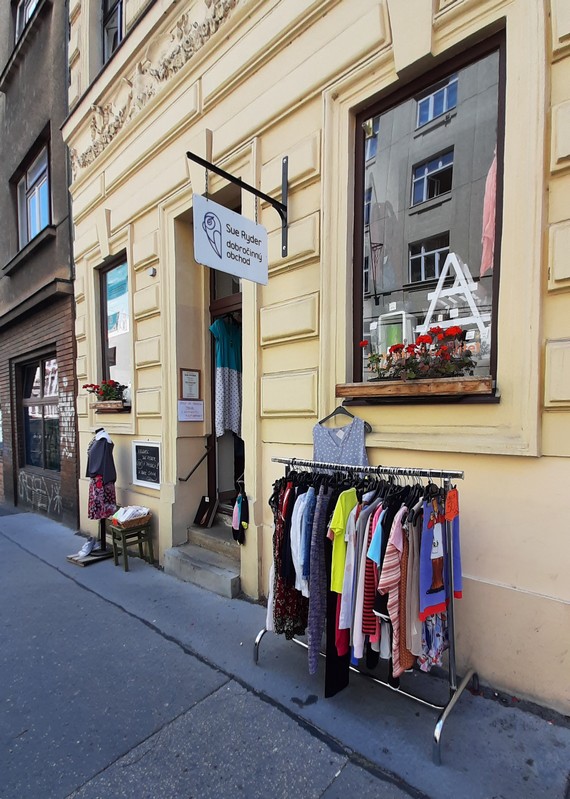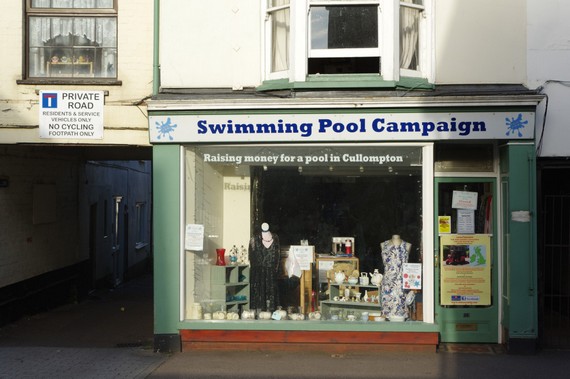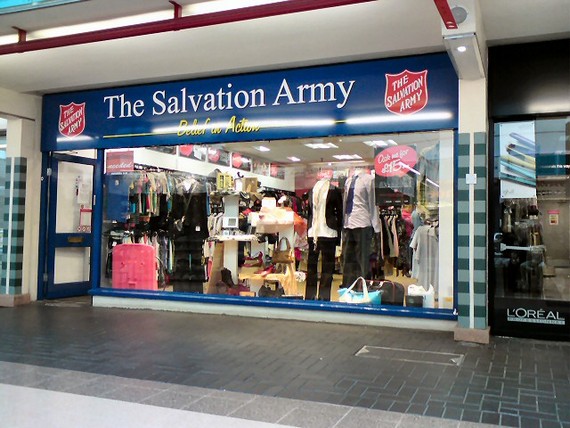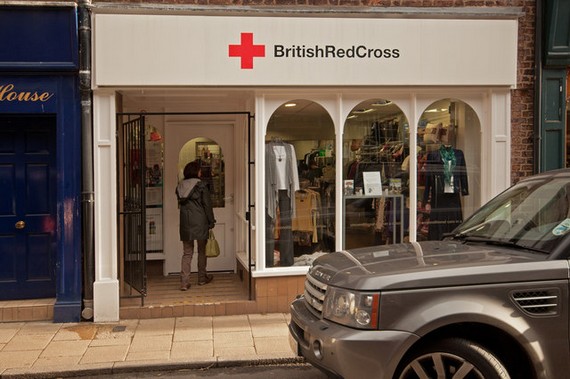How can clothes be recycled?
August 13, 2024How can clothes be recycled? Charity shops, thrift stores, and other recycling centers collect textiles from clothes donations and sort post consumer waste including fast fashion into color and material. Only a small percent of textiles go through the recycling process.

Sue Ryder charity shop in Prague. MAKY.OREL, CC0, via Wikimedia Commons
The fashion industry has instigated textile recycling programs to try and deal with textiles waste. Recycling bins are placed strategically so that the textiles industry can deal with the million tons of clothes and other textiles which are thrown away. Recycled textiles are then created from the waste. It can be made from all natural fiber, or a mixture of fibres like 15 percent nylon. It is shredded and made into fabrics like felt.
How can Clothes be Recycled? – Choosing a Charity
How do you choose which charity to support? People have different criteria. You may simply choose to drop your unwanted clothes off at the nearest charity shop. That’s perfectly valid, because it still saves clothes from going to waste. You may also choose to use a charity bin, which is fine too. It is slightly better to take it into the shop if you can, though. This is because clothes might get damp in the collection bin, and start to rot. Then they can’t be worn or used further.
Also, do not leave the donations outside. Of course it is difficult if you just want to drop things off on the way to work and it might seem quicker that way, too. But again, things might get wet, and it’s always very messy when they get rummaged through. I have seen signs on charity shop doors saying that they simply can’t use donations which have been left like this and they throw them away. So that’s a wasted trip for you and wasted effort for them in clearing it up, so don’t do it.
You may wish to support a charity which is close to your heart. Perhaps it is a very small local charity. There are some which have just one little shop, and if you don’t donate to them, an important revenue stream will be lost to them. In these cases, your donation actually makes a significant difference, unlike say, a much bigger enterprise which sometimes has more donations than it can handle.

Charity shop – Cullompton by Stephen McKay, CC BY-SA 2.0, via Wikimedia Commons
Something Close to Your Heart
Other reasons for direction your donation of recycled clothes a certain way include that perhaps you are passionate about the eradication of a certain disease, because a close relative suffered with it. So cancer charities and that kind of thing stands out to you. Hospice support is another, where they will look after people in their last weeks or months. Others choose animal charities because they like to protect animals.
Another way of thinking of it is that there might be places you do not want to support. Some people will avoid cancer charities, because they test on animals. In other places, it may be that a lot of funds are spent on management and not the charity recipient you thought, or perhaps the founders have been involved in a scandal or something like that. So it might be something you want to research before you drop things off – or maybe life is too short.

Salvation Army Charity Shop by Gerald England, CC BY-SA 2.0, via Wikimedia Commons
How can clothes be recycled? – How did Charity Shops Come About?
UK charity shops are a very specific type of business. They sell second-hand clothes and other things which have been donated for free by the public. Some sell some new things, Oxfam in particular partnering with enterprises abroad to sell new craft items as well. But on the whole, you think of charity shops, you think cheap used clothing. When were they invented?
Well, jumble sales were held from the Victorian times onwards. Jumblies are not much seen any more – I guess car boot sales might be the nearest thing we have regularly. But whereas car boot sales are held to sell the owner’s second hand stuff when they have a clear out, jumble sales were for charity, and operated on a donation basis. People would drop off things they didn’t want, a small fee was charged for entry, and you could find bargains for pennies.
Jumble sales were initially held by churches, which makes sense. They have have a strong community in their congregation, who will be happy to both donate things and attend. They have the space to hold them, in their church hall. And they can either use the money for the poor or for the church roof.

British Red Cross Charity Shop, King Street, Knutsford.
by Roger A Smith, CC BY-SA 2.0, via Wikimedia Commons
World War 2 and the Red Cross
Charity shops were established as kind of permanent jumble sales in the UK during World War 2. These first ones were in aid of the Red Cross. They were staffed by volunteers, and the empty shops were leant out rent free – in some cases, the shop owners paid electricity and utilities as well. I suppose there would have been quite a few empty shops up and down the country, as the people who ran it had been called up to fight or do war jobs.
The Red Cross is a charity who do humanitarian work – for example, in WW2 they trained thousands of nurses and set up hospitals for the wounded. It was a very good cause to raise money for, especially in the circumstances.
During the war, new clothing was rationed, but second hand clothing was not. You could only buy a certain amount of new clothes or fabric, no matter how much money you had. Even the Queen could not get new clothes every day. You could buy as much clothing as you could afford from a Red Cross Charity shop, and it would be cheaper than new clothes too. So it was a great idea for a business, because the shops were very popular, and costs were very low. So there was plenty of profit to be sent to head office.
Nowadays in the UK, shops are staffed by a mixture of paid employees, usually management, and volunteers, usually people on the shop floor. Rent and bills are set at the normal rate or with small exemptions. But they still offer cheap, good quality clothing and the money you spend is for a good cause.